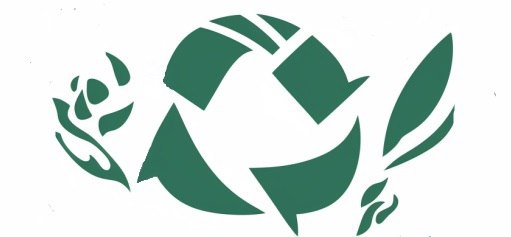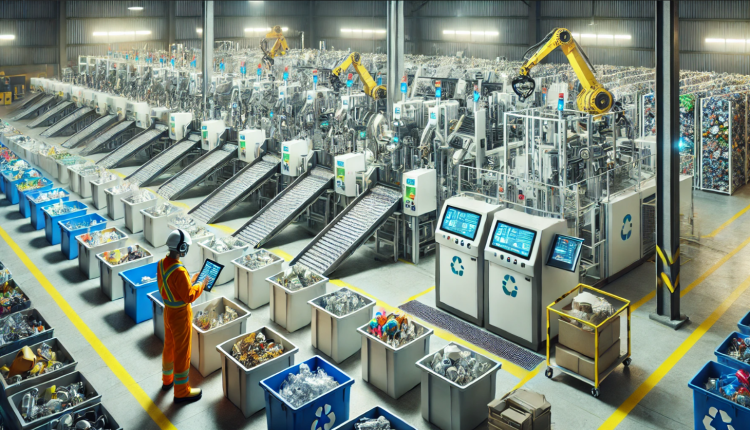- Advertisement -
As global environmental concerns intensify, the recycling industry is undergoing significant transformations to address the escalating waste crisis. In 2024, several groundbreaking innovations are set to revolutionize recycling processes, enhance efficiency, and promote sustainability.
1. Advanced Recycling Technologies
Traditional recycling methods often struggle with complex materials, leading to inefficiencies and increased waste. Advanced recycling technologies, such as chemical recycling, are emerging as solutions to these challenges.
Chemical Recycling
Chemical recycling breaks down plastics into their original monomers, allowing for the creation of new, high-quality plastics. This method can process mixed and contaminated plastics that are unsuitable for mechanical recycling, significantly reducing landfill waste.
Automated Sorting Systems
The integration of artificial intelligence (AI) and robotics in recycling facilities has led to the development of automated sorting systems. These systems accurately identify and separate different types of recyclables, improving the purity of recycled materials and enhancing overall efficiency.
2. Digitalization and Smart Recycling
The digital revolution is making its mark on the recycling industry, introducing smart solutions to optimize waste management.
Smart Bins
Equipped with sensors and connectivity features, smart bins monitor waste levels in real-time, enabling efficient collection schedules and reducing operational costs. They also assist users in proper waste segregation, enhancing recycling rates.
Blockchain for Recycling
Blockchain technology is being explored to create transparent and traceable recycling processes. By recording each step of the recycling journey, stakeholders can ensure compliance, track materials, and incentivize participation through tokenized rewards.
3. Circular Economy Initiatives
The shift towards a circular economy emphasizes designing products for reuse, repair, and recycling, minimizing waste and resource consumption.
Product-as-a-Service Models
Companies are adopting models where consumers lease products instead of purchasing them. At the end of the product’s life cycle, it is returned, refurbished, and redistributed, ensuring materials remain in use and reducing waste.
Eco-Design
Manufacturers are increasingly focusing on eco-design principles, creating products that are easier to disassemble and recycle. This approach reduces the environmental impact and supports sustainable resource management.
4. Policy and Legislative Developments
Governments worldwide are implementing policies to support recycling innovations and sustainable practices.
Extended Producer Responsibility (EPR)
EPR policies hold manufacturers accountable for the entire lifecycle of their products, including end-of-life disposal. This responsibility encourages the design of more sustainable products and investment in recycling infrastructure.
Recycling Legislation
Recent legislation, such as the Accelerating a Circular Economy for Plastics and Recycling Innovation Act introduced in the U.S. House of Representatives, aims to tackle plastic waste challenges and improve sustainable material innovation by establishing standards for the nation’s recycling infrastructure.
5. Consumer Engagement and Education
Public awareness and participation are crucial for the success of recycling initiatives.
Educational Campaigns
Organizations and governments are launching campaigns to educate the public on proper recycling practices, the importance of waste reduction, and the benefits of participating in recycling programs.
Incentive Programs
Incentive-based programs, such as deposit return schemes for beverage containers, motivate consumers to return items for recycling, increasing collection rates and reducing litter.
6. Challenges and Future Outlook
While these innovations offer promising advancements, challenges remain in achieving global recycling efficiency.
Contamination Issues
Contaminated recyclables can hinder the recycling process, leading to increased costs and reduced material quality. Ongoing efforts focus on improving public awareness and developing technologies to manage contamination.
Infrastructure Disparities
Disparities in recycling infrastructure between regions pose challenges to uniform recycling practices. Investments in infrastructure and technology are essential to bridge these gaps and promote global sustainability.
In conclusion, the recycling industry in 2024 is characterized by technological advancements, policy developments, and increased consumer engagement. These innovations are paving the way for a more sustainable future, addressing the pressing challenges of waste management, and promoting environmental stewardship.

